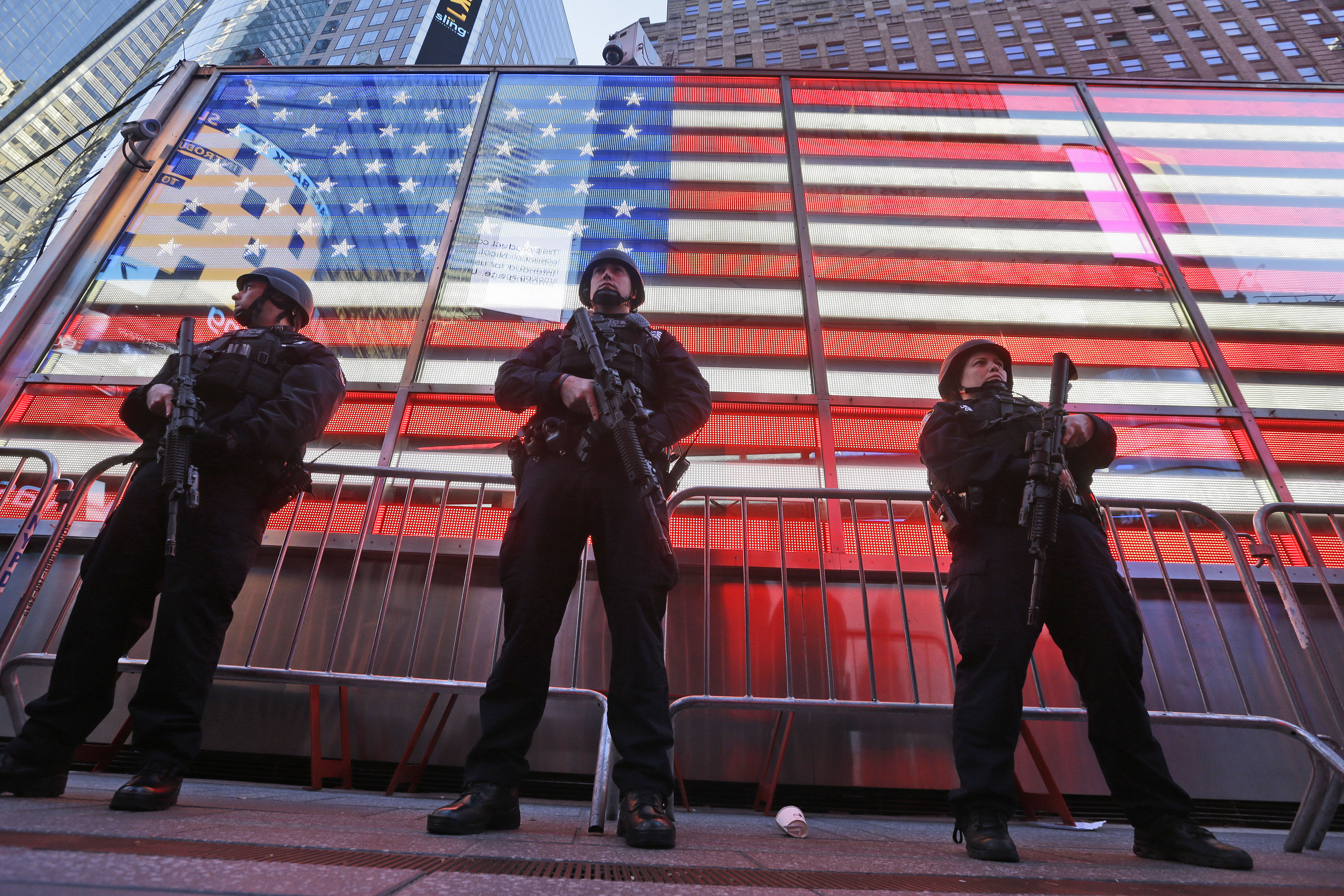 As the world reels from the last Friday’s terrorist attack in Paris, millions of people have taken to Twitter to share their grief and outrage. Many called for a very specific course of action:
As the world reels from the last Friday’s terrorist attack in Paris, millions of people have taken to Twitter to share their grief and outrage. Many called for a very specific course of action:
The desire to immediately strike back at ISIS with overwhelming force is understandable. It took under 48 hours for the French military to retaliate for the attack with air strikes against targets in the ISIS stronghold of Raqqa, Syria. However, it’s important to remember why groups like ISIS mount large-scale spectacle terrorist attacks against Western targets in the first place: to provoke a dramatic military reaction that brings moderate Muslims around the world into agreeing with its worldview. Retaliatory strikes against ISIS will certainly weaken the group, maybe even destroy it, but that type of response is precisely what ISIS is hoping to elicit.
More from The Daily Dot: “Why an H.I.V. diagnosis is treated like a crime in most U.S. states”
In his book Beyond Fundamentalism, religious scholar explains that the chief goal of radical Islamist groups like ISIS is to create a “cosmic war” in which human beings act out a religious war they believe is simultaneously occurring in heaven: Fundamentalist Islam on one side and that Western Christianity on the other.
“There can be no compromise in a cosmic war. There can be no negotiation, no settlement, no surrender,” writes Aslan, arguing that fundamentalists successfully framing their grievances as a black-and-white existential struggle allows groups like ISIS to set the philosophical terms of the fight. “In the end, there is only one way to win a cosmic war: to refuse to fight it.”
President George W. Bush reacted to the Sept. 11 terrorist attacks by engaging in a large-scale military campaign first against Afghanistan and then Iraq. The total cost of the Afghanistan and Iraq wars to the American government has grown to a mind-boggling $6 trillion over the past dozen years. There is little doubt that similar military campaigns from Europe would carry a comparably staggering price tag.
“[Bush] responded with precisely the cosmic dualism that those who carried out the attacks had intended to provoke,” Aslan writes.
More from The Daily Dot: “Meet the real hackers waging war on ISIS”
As thousands of Muslim civilians died in military campaigns led by America and its allies, Islamic extremists fed off the resulting anger and hopelessness felt by those directly impacted or outraged by the war. Instead of spreading democracy and stifling radicalism in the Middle East, the bombings and other high-casualty military actions wound up having precisely the opposite effect.
America’s intensive military response to Osama bin Laden’s attack also played a large role in creating ISIS today. “Over the years, bin Laden … never made it a secret what he was up to: trying to bait the U.S. into a ground war in his backyard, so that he could defeat us, just as he’d defeated the USSR, in large part by bleeding us dry financially,” writes columnist Paul Rosenberg in Salon.
Not only did Bush’s military campaigns in Afghanistan and Iraq lend credence to the radical Islamist argument about a holy war between the Muslim world and the secular West, but deposing Saddam Hussein created a power vacuum in the Iraq that ISIS was willing and able to fill.
Furthermore, the Islamophobia spurred by attacks in Paris reinforces the notion that the West poses an existential threat to the Muslim faith. While all of the Paris attackers identified so far have been European nationals, right-wing parties throughout continental Europe are indulging in anti-refugee rhetoric. It’s arguably worse in the U.S., where 25 Republican governors have announced they will attempt to block Muslim Syrian refugees from settling in their states. Anti-Muslim hate crimes have already been reported in both Europe and the U.S.
More from The Daily Dot: “These pigeons could diagnose you with cancer”
“This is precisely what ISIS was aiming for–to provoke communities to commit actions against Muslims,” Arie Kruglanski, a professor of psychology at the University of Maryland who specializes in terrorism, said in an interview with theWashington Post. “ISIS will be able to say, ‘I told you so. These are your enemies, and the enemies of Islam.”
The crisis with ISIS is complex; charting an ideal of course of action has flummoxed many of the world’s best foreign policy thinkers. But as the West continues to process the Paris attacks, its main psychological challenge will be to avoid the reflexively overblown military response that will play right into ISIS’s hands. It feels gratifying to talk like Donald Trump about “bombing the shit out of them,” but just because we have awesome military power doesn’t mean the right thing to do is use it awesomely. ISIS didn’t attack Paris at random. They did so with the goal of provoking a specific response.
The West needs to think long and hard if it’s best course of action is giving ISIS exactly what it wants.

